Dr. Charlotte Haney is CVHS’s Teacher of the Year
Photo courtesy of Carnegie Vanguard High School
The poster that announced Dr. Charlotte Haney as CVHS’s 2021-2022 Teacher of the Year
Colorful balloons gently bumped the doorway as Mrs. Matsu, Dean of Instruction and AP Coordinator, made her way into Dr. Charlotte Haney’s room with flowers in hand. The PTO gifted Haney a generous gift card with balloons and flowers. The celebratory gifts were in honor of social studies teacher Dr. Haney’s recent winning of Carnegie Vanguard’s Teacher of the Year (2021-2022) award.
Haney has taught at Carnegie for three years, totaling approximately nineteen years of teaching experience collectively. Throughout her childhood, Haney hopped from small town to small town, making it difficult for her to have a grounded social and academic experience. Her past teachers, who were kind and enthusiastic, inspired her to pursue teaching. Although Haney has always loved curiosity and new ideas, which made the academic setting the perfect environment for this passion, she had first-hand experience with how a teacher could negatively impact students.
“We [my family] moved to a lot of small towns where they weren’t used to strangers coming in, so it was often really hard for me to fit in. And my teachers would make a big difference. So depending on whether they were supportive or not, it would really influence a year. Unfortunately, when I was in my younger grades, I had several bully teachers who just picked on kids. Then in high school, I had a wonderful bunch of wonderful teachers. Between those two experiences, it was really important to me,” said Haney.
Haney also attributes her desire to be a teacher as stemming from her love of learning about the world, and she wanted to make a place where students could comfortably explore new thoughts and perspectives.
“I loved playing around with ideas and talking about them. I knew what a difference a teacher could make in a classroom. For me, the opportunity to make an hour where kids are safe and get to play with this exciting world is something I really wanted to do,” said Haney.
As a student, Haney experienced something Carnegie students relate to, struggling with perfectionism.
“I was a truly terrible student because I was a perfectionist, which is something that is common among GT students. I was afraid to turn in work unless it was perfect. Then, I was really worried that I couldn’t make perfect work,” Haney said. “It just became a spiral. And I often wouldn’t turn things in. And so, when I turned things in, it was fine. But there was a lot of paralyzing perfectionism. And that’s something that we see with us. So we have a lot of very gifted students who just wouldn’t turn anything in. And once I finally learned that, just turn in everything, even if it’s terrible, then I was a pretty good student.”
Haney hopes her development from a not so exceptional student to an accomplished scholar with a doctorate will serve as an example for students that they can preserve to accomplish their goals.
“I think it’s important to be vulnerable. It’s very important to have good, appropriate boundaries with your students. At the same time, kids need us to model vulnerability. That’s why I’ll talk about what a crappy student I was, because students need to see why I force kids to call me “Doctor.” It’s because I want them to have that experience of hearing ‘I was a terrible student, and I’m a doctor,’ so the kids in my room who are more marginal, who are struggling, can see that you can struggle, and you can still have the world open up for you,” Haney said.
Haney overcame this struggle and went on to earn a B.A. in English Literature from the University of Texas at Austin because of the liberation she feels stories have on readers.
“I think that they [stories], especially fairy tales, teach us about bravery and courage. They open new worlds to us. If your environment isn’t one that sets you free, they can suggest possibilities of freedom to you that wouldn’t have occurred to you. I find them so fun and just wonderful,” Haney said.
After earning her B.A. in English Literature, she pursued an M.A. in Anthropology at the University of Houston. Before leaving to get her M.A., Dr. Haney taught at an underprivileged high school. The students had been separated into those who could be “saved,” or had the potential to pass, and the others who did not. Dr. Haney had been teaching an Honors Government class, and the students, the majority of whom were the children of recent immigrants, had all written something about something similar: their cemented belief of the “American Dream,” despite the fact the system was working against them.
“They were totally bought into this idea that if you just work hard now, you can get all of America’s riches. I read those papers, and they were so bittersweet because these kids were working so hard, but the support and the opportunities are just so lacking. If they didn’t make it, they were going to feel like it was their fault. I was just blown away by that experience. It was like I really wanted to be a teacher, but teaching in that environment felt like I was just stamping kids with a failure stamp when that wasn’t what they deserved at all, so that Christmas, I had my daughter, and I had decided already to take the spring off. As the fall came closer and closer, I was kind of horrified, right? I felt complicit,” said Haney. “What I found myself coming back to over and over is that I wanted to understand why people ended up where they end up, so we live in what we call a meritocracy. Why do people end up in the same position, generation after generation? If it’s not somebody from above, forcing that to happen, what are the structures in place that make that not inevitable, but nearly? And that’s true to anthropology.”
This event triggered Haney’s pursuit of an M.A. in anthropology, which led to her diving further into the discipline; she then obtained a Ph.D. in Anthropology from Case Western Reserve University, focusing her work on gender.
“That fall, instead of going back to the school, I did a master’s thesis. I ended up working on gender violence and the way that gender violence helps perpetuate those structures of inequality. I worked on sexual violence and experienced childbirth for my thesis for that. I found it so interesting to understand that operation of power, especially through gender and the state, that I decided to go ahead and get a Ph.D.,” said Haney.
For the past nineteen years, Haney sought a safe space for students at various institutions. She taught small private classes, such as executives classes, at an underprivileged high school, at the University of Houston (while pursuing a Master’s degree), at the Chihuahua Branch of Universidad Nacional Autónoma de México (UNAM), at the University of Houston Clearlake, and Yes Prep. After this, Dr. Haney began to teach at CVHS, where she currently teaches AP Human Geography, AP Macroeconomics, and AP Government. Dr. Haney became a teacher at Carnegie three years ago, because of the unique culture, with the bonus of easing her commute by dropping off her kids at CVHS for school and arriving for work simultaneously.
“I just don’t think students have the perspective to appreciate that it’s not about us. You have good teachers. Everybody here is a competent, good teacher who cares about their students. That’s just the baseline, and that’s not the baseline everywhere,” Haney said. “But what you guys get that you don’t appreciate is your peers. All that stuff, where you’re learning from each other, and you’re studying and helping each other and other stuff, that’s actually where the real stuff comes in because you all are all so bright that you just push yourselves. You all are also different because you come from all kinds of walks of life, so you help each other see things more broadly. The thing that Carnegie does that students don’t understand is actually the most important stuff going on here. That’s what makes it special.”
Haney ensures that socialization between peers is allowed to develop, both in class and during her advocacy period.
“She still finds the time to make sure that we do stay social, but we also get our work done. So that’s why I usually on most of my days, we have like 15 minutes of silence so we can kind of get our lives together, everything like that,” said Junior Natalie Ghannad.
Just as her teachers inspired Haney, her teaching has influenced students’ decisions for life after high school.
“I was thinking about my college major. I wanted to do business. But now, I want to do teaching, and I think one of the main reasons is Dr. Haney’s my favorite teacher. She influenced what I wanted to do,” said Junior Carly Vasquez.
In the past, Haney taught 1968 and World Wars. AP Human Geography perfectly aligned with her Ph.D. in Anthropology.
“Human geography is the perfect prologue to anthropology. So it’s taken a little bit because so many of the topics overlap so well,” said Dr. Haney. “It’s a natural fit for somebody with an anthropology degree.”
Haney also finds fulfillment in teaching Carnegie’s Macroeconomics, AP Human Geography, and Government classes because students will apply the content to the real world.
“I think this student body is going to have a profound influence on the world and being able to teach them human geography, where they’re learning something about their world, or teach them economics where they learn to make good decisions, and how the tools for how to do that, and teaching them government where they learn how their government operates, is just giving them the tools, and maybe hopefully the compassion that they can use when they get to those positions,” said Haney.
Haney’s love of seeing her students flourish is also reflected in her hobbies outside of school and academia, further displaying her dedication to the calling of nurturing and promoting things to develop to their full potential.
“I love to make things grow. That’s what I learned is what I love. That’s why I like teaching. I love watching you guys grow, and I love animals. So I have lots of them,” said Haney. “I garden a lot, so I love making things grow and reading, of course.”
Your donation will support the student journalists of Carnegie Vanguard High School. Your contribution will allow us to cover our annual website hosting costs and fund field trips, competition fees, and equipment. We appreciate your support!
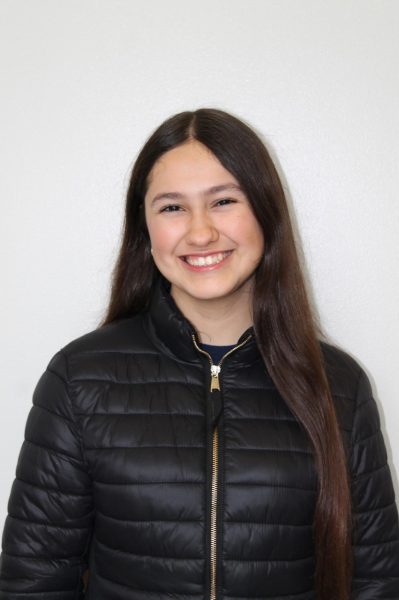
Sasha Cabral is a senior at CVHS. A musician and an artist, she imbues everything she does with creativity. She loves rock music, the colors red, black...


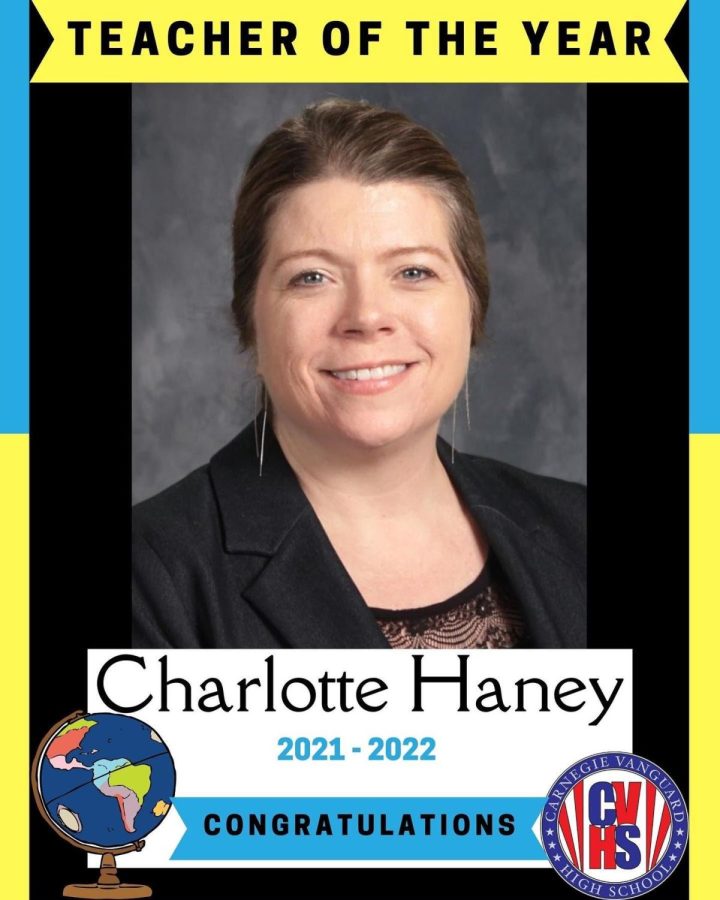

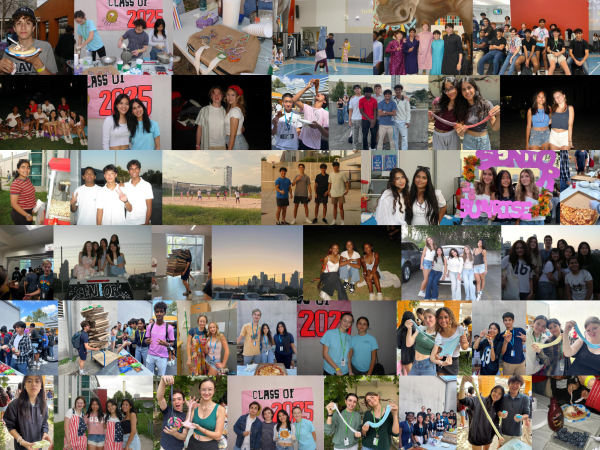
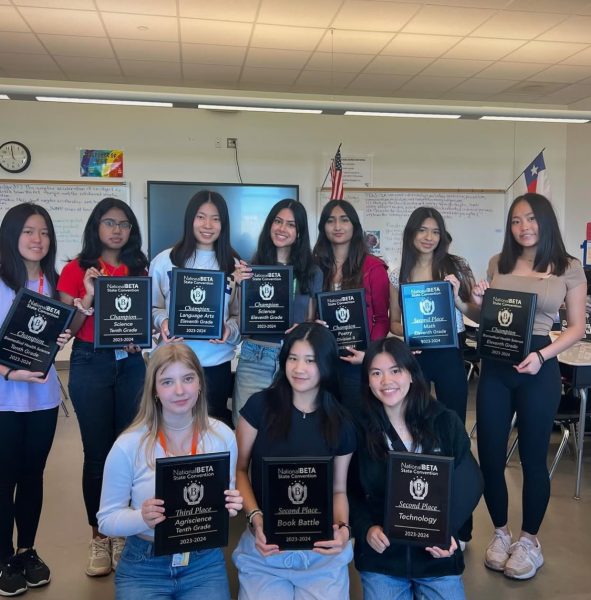
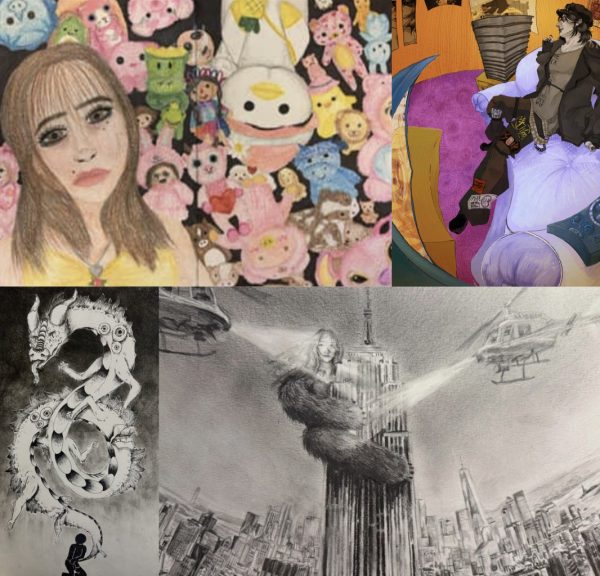
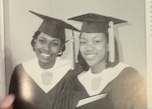
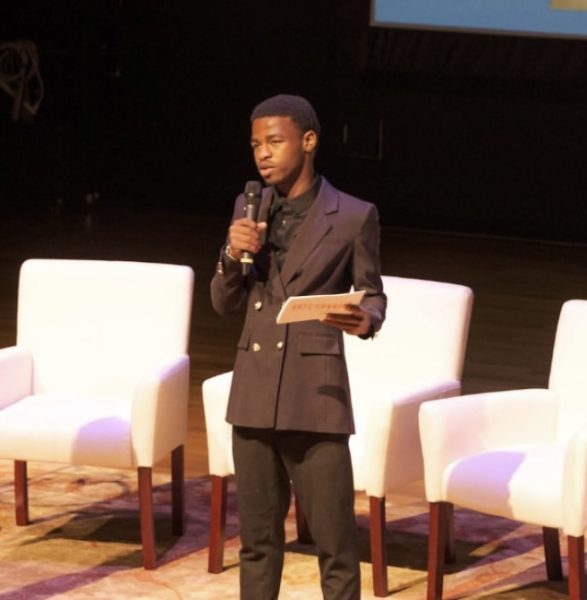
Jessica Lin • Mar 8, 2022 at 1:58 pm
It was very interesting to hear about Dr. Haney’s experience as a teacher. I love the quotes that you chose. They really highlight her ideals.